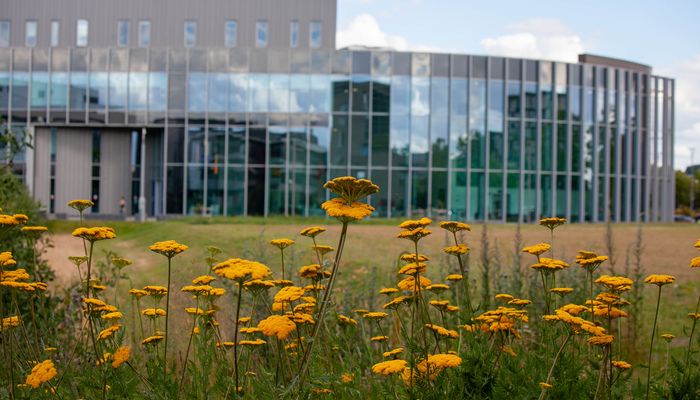Get Involved
Outside of their studies, our students can engage in a variety of volunteering projects through the Sustainability Team, Students’ Union, and local environment groups. There’s also the opportunity to participate in sustainability-themed events, such as our Climate Action Festival, which was a winner in the Creating Impact category at the 2024 Green Gown Awards.
The Students’ Union’s Environment, Conservation and Opportunities (E.C.O) Society aims to make constructive changes to the campus and local environment by creating green spaces, improving habitats, and raising the profile of environmental issues. In addition to making a positive environmental impact, the society offers a great chance to meet like-minded students with a passion for environmental issues.
/prod01/university-of-lincoln-cdn-pxl/media/responsive2017/homepage/Digitronix,Student,INB,Flowers.jpg )



